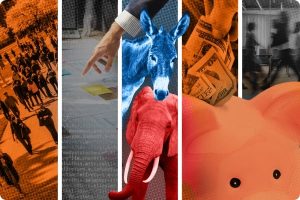A recent federal court decision has sparked controversy and debate over the issue of religious discrimination in government assistance programs during the COVID-19 pandemic. In a case involving a small business owner who claimed his application for a pandemic relief loan was denied because of his Christian faith, a judge ruled in favor of the government agency responsible for administering the loan program.
The case in question centered around John Smith, a devout Christian and owner of a small business that had been severely affected by the economic downturn caused by the pandemic. Smith applied for a loan through a government program designed to provide financial assistance to businesses suffering from the effects of the pandemic. However, his application was denied, and he alleged that the denial was based on his religious beliefs.
Smith filed a lawsuit against the government agency responsible for processing his loan application, alleging that he was the victim of religious discrimination. He claimed that his application was denied because of his Christian faith and that he was being treated unfairly because of his religious beliefs.
However, in a recent ruling, the judge presiding over the case rejected Smith’s claim of religious discrimination. The judge found that there was no evidence to suggest that Smith’s religious beliefs played a role in the decision to deny his loan application. The judge noted that the government agency had provided a legitimate reason for denying Smith’s application, citing issues with his business’s financial records and eligibility for the loan program.
This decision has reignited the debate over the issue of religious discrimination in government assistance programs during the pandemic. Some critics argue that denying financial assistance to someone based on their religious beliefs is a clear violation of their rights and is discriminatory. They argue that all individuals, regardless of their religious beliefs, should have equal access to government assistance programs during times of crisis.
On the other hand, supporters of the judge’s decision argue that the government has a responsibility to ensure that taxpayer funds are allocated fairly and efficiently. They argue that the decision to deny Smith’s loan application was based on legitimate concerns about his business’s eligibility for the program and had nothing to do with his religious beliefs.
Overall, the ruling in this case highlights the complex and contentious issues surrounding religious discrimination in government assistance programs. While it is important to protect individuals from discrimination based on their religious beliefs, it is also crucial for government agencies to ensure that taxpayer funds are used responsibly and effectively. As the pandemic continues to affect businesses and individuals around the world, it is essential for policymakers and lawmakers to carefully consider these issues and find a balance that protects both individual rights and the public interest.



